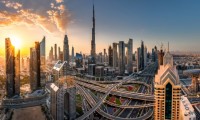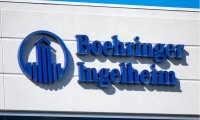-
Johnson & Johnson Becomes 4th Drugmaker to File Suit Against IRA’s Drug Price Negotiations
- Source: drugdu
- 279
- July 20, 2023
-
Neumora Races Toward Phase III with New Driver in the Hot Seat
- Source: drugdu
- 112
- July 20, 2023
-
UAE, Saudi Arabia Serve as Gateway to International Markets for Biopharma
- Source: drugdu
- 149
- July 13, 2023
-
first interchangeable biosimilar to Humira rolls out across US
- Source: drugdu
- 133
- July 5, 2023
-
FDA rejects Alvotech’s Humira biosimilar for the third time
- Source: drugdu
- 108
- July 1, 2023
-
Novartis to acquire Chinook Therapeutics for approximately $3.5bn
- Source: drugdu
- 119
- June 16, 2023
-
Johnson & Johnson inks another Stelara patent settlement, this time with Alvotech and Teva
- Source: drugdu
- 123
- June 14, 2023
-
Novartis to acquire Chinook Therapeutics for approximately $3.5bn
- Source: drugdu
- 108
- June 14, 2023
-
Ironwood Pushes Gut Drug to Pediatric Setting
- Source: drugdu
- 225
- June 13, 2023
-
Pfizer taps Samsung Biologics in long-term biosimilar production deal worth $411M
- Source: drugdu
- 117
- June 11, 2023
your submission has already been received.
OK
Subscribe
Please enter a valid Email address!
Submit
The most relevant industry news & insight will be sent to you every two weeks.













